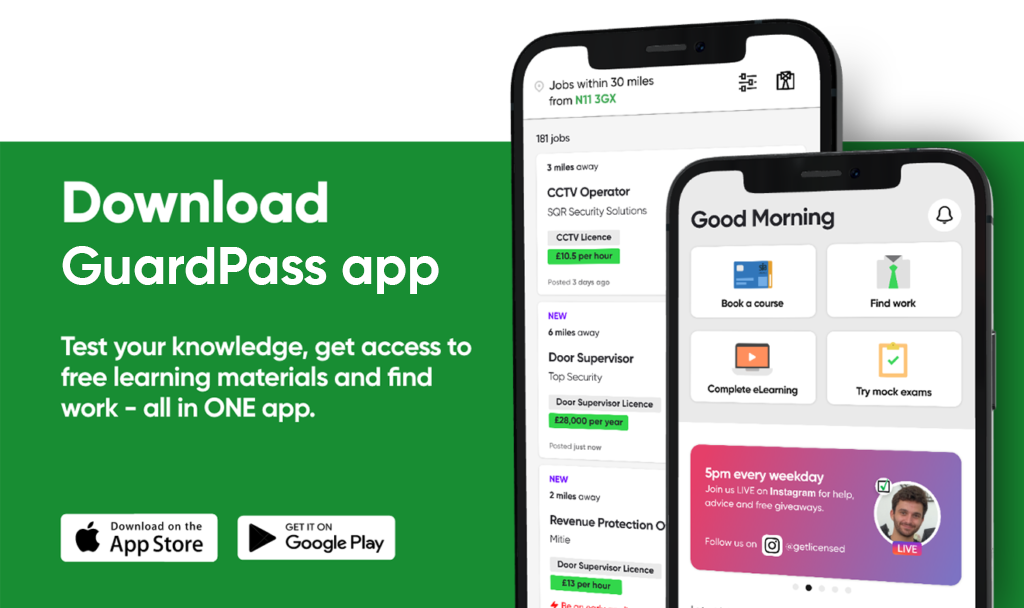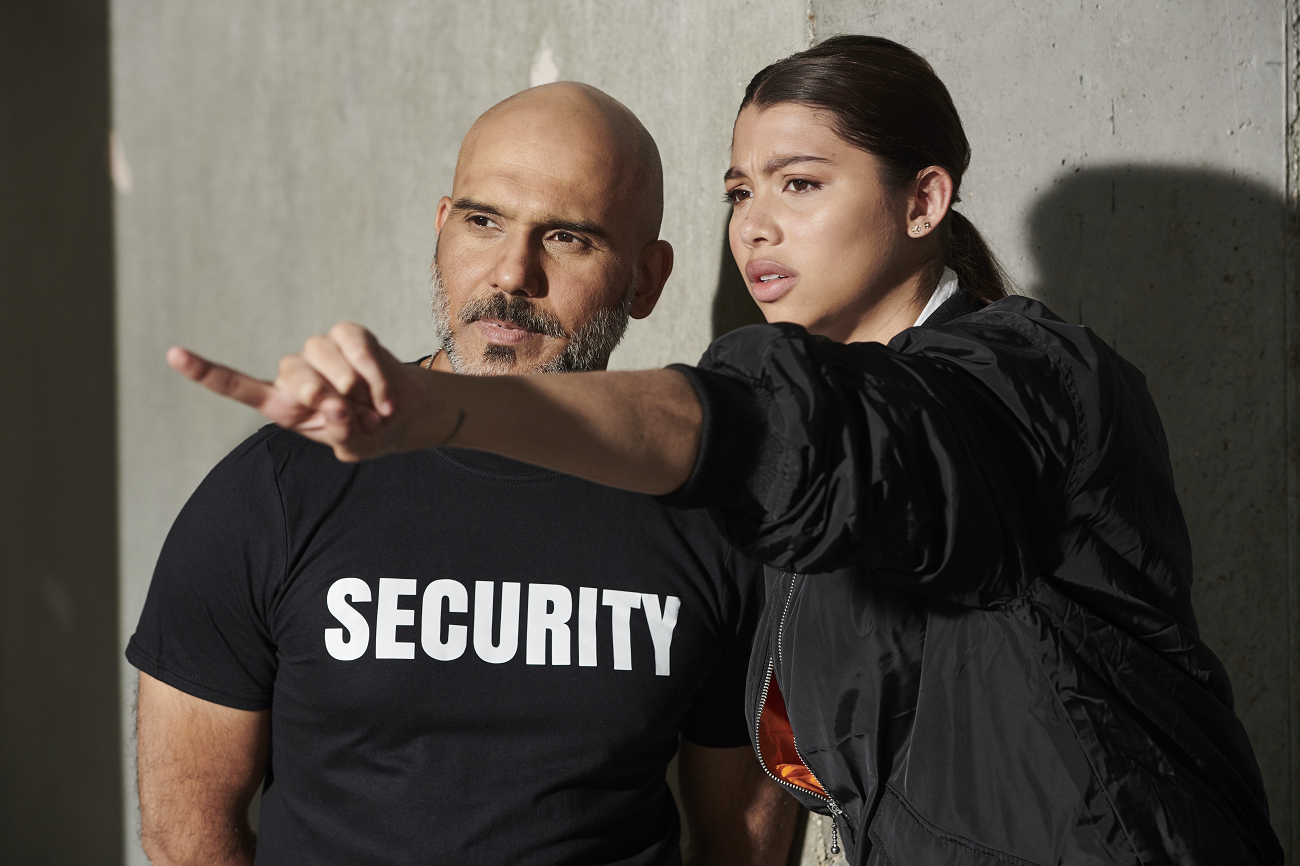Communication: the imparting or exchanging of information by speaking, writing, or using some other medium.
Of all the qualities that a security operative must possess, effective communication is hands down one of the most important. Not only is it a common requirement found in pretty much every job description, it is the basic building block of all human interaction.
Communication is an act that we engage in unconsciously, very much like the act of breathing. However, the trouble is that whilst many people ‘talk’, they may still fail to ‘communicate’ with each other. The difference between simple communication and communicative effectiveness is that the latter requires much more skill. However, with time and patience, this skill will be addressed during your SIA course, and can be practiced whilst on the job.
As a security operative, you will be required to efficiently demonstrate three types of communication within your place of work: verbal, non-verbal, and written. Effective communication can help one to get a sense of direction while resolving a dispute, develop an insight into how other people think, and what motivates their actions, offer the right kind of assistance, and reassess opinions to ensure a speedier resolution of conflicts. On the other hand, if communication exchanged within any of these mediums is not clear or complete, it can lead to poor performance, and instigate potential conflict.
Verbal Communication
The protection and safety of people is the fundamental purpose of the private security industry. Although it may not be obvious from the job description, the role of every security operative is partially customer-service based, and in essence, it goes without saying that the customer should come first.
Most security operatives, particularly door supervisors and retail security guards will frequently communicate with the public on a daily basis. Every interaction that an operative has with the public contributes to their customer experience, so it is important to remain as polite and approachable as possible.
Effective communication can be attained by simply remaining calm and focused when communicating, and speaking clearly in both tone and language. Effective verbal communication also goes hand in hand with the art of listening. Whilst this sounds seemingly simple, it is a skill that many fail to utilise efficiently. This is because many people mistake ‘listening’ with ‘hearing’. Active listening requires using all the senses by giving full concentration on what is being said, and responding positively and appropriately to the information acquired.
Non-Verbal Communication
Non-verbal communication just as significant, if not more important than verbal communication. The reason for this is that whilst we are more conscious of the words we speak, we are often unconscious to our body language, which has the ability to either emphasise or emit a contradictory message to what we communicate verbally. Security operatives represent their place of work through their appearance and actions, so it is important that your body language is consistent with your verbal message to enhance understanding.
Non-verbal cues include facial expressions, tone and pitch of voice, general body language, and proximity of distance between two people in communication. Maintaining eye contact with a customer or member of the public during an interaction is essential, as it not only demonstrates that you are listening and interested, it also shows respect. Folding your arms and slouching may indicate that you are bored and uninterested, and a speaking in an unnatural volume or tone can be perceived as high-handed and over bearing. Many interpersonal interactions can also be culturally defined. By being conscious of all of these factors in the way you communicate with public, and by understanding the impact of these behaviors, you will be able to facilitate effective communication in any situation.
Written Communication
As a security operative, writing an incident report is an essential aspect of your role. Whilst incident reports are confidential, not only will they possibly be viewed by your boss, it is highly likely that they will be accessed by the police, relative legal authorities, and potentially used as evidence in a court of law, depending on the circumstance. Therefore, there is a strong need for all operatives to communicate efficiently and professionally, not just verbally, but also on paper.
The secret to good written communication is not necessarily in the types of words used, but in the simplicity and clarity of the words itself. An incident report should be professional, descriptive yet objective, and be able to be understood even by those who work in a completely unrelated job field. This can be achieved by the use of simple yet formal wording, accurate spelling, punctuation and grammar – slang, informal terminology and text-speak should be avoided at all costs.
When compiling an incident report, the format and presentation method of your written content is also important, as it can aid in communicating and highlighting essential information. Utilising paragraphs is highly recommended to separate large blocks of text, and the use of bullet points can also be used to effectively communicate information as simply, concisely and clearly as possible.
Looking for jobs?
Are you looking for a job? Find exciting opportunities on the GuardPass app. All you need to do is enter your area or your preferred job title to find your next big break!

The GuardPass App is available for download on the Apple App Store or on the Google Play Store.
For more tips, the latest security news and exciting prize draw campaigns, sign up above to receive emails and stay updated.




Leave a Reply